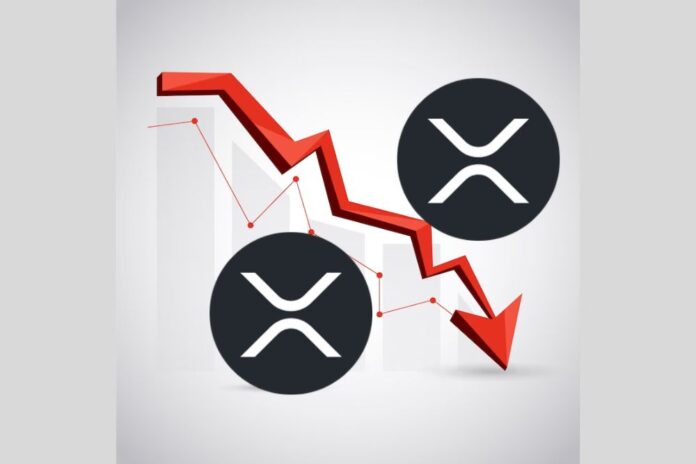On December 18, 2024, the Federal Reserve announced a 25 basis point (bps) reduction in interest rates, a widely anticipated move following signals from policymakers.
Despite meeting market expectations, the announcement sparked a significant selloff in equities and cryptocurrency markets, including Bitcoin, Ethereum, and XRP. The market’s negative reaction highlights concerns about the broader implications of the rate cut.
Market Reaction to the Rate Cut
Zero Hedge, a prominent financial news and analysis platform, posted the announcement on X stating “FED CUTS 25BPS AS EXPECTED.”
FED CUTS 25BPS AS EXPECTED
— zerohedge (@zerohedge) December 18, 2024
In response, user JP Friend 1 queried, “Why is market dumping on that news?” This question underscores confusion among retail and institutional investors, as rate cuts are traditionally viewed as supportive of financial markets.
Another user, Bleeerg, offered an explanation stating “There is a theory that cutting rates after a period of raises means that there are issues with the economy and it marks the start of a recession.”
Aron Meystedt, contributing to the discussion, provided historical context: “Yep. If you look at past charts over time for the major indices and overlay them with the fed funds rate, the stock drop (recession) happens AFTER the rates are dropped. It’s counterintuitive, but that’s the way it usually goes.”
Historical Context and Recession Concerns
The theory discussed by users aligns with historical patterns. During previous economic cycles, rate cuts following a prolonged tightening phase have often signaled underlying economic vulnerabilities. Policymakers typically lower rates to stimulate growth, but the decision can indicate that the economy has entered a period of contraction or is at risk of doing so.
We are on twitter, follow us to connect with us :- @TimesTabloid1
— TimesTabloid (@TimesTabloid1) July 15, 2023
This dynamic creates a paradox: while rate cuts reduce borrowing costs and aim to encourage investment, they can also signal that monetary authorities are bracing for economic downturns. Investors often react by selling risk assets, anticipating weaker earnings, reduced consumer spending, and tighter credit conditions.
Cryptocurrency Market Impact
The selloff was not limited to equities. Major cryptocurrencies also experienced sharp declines, with XRP down 9.8% in the past 24 hours, trading at $2.32.
Meanwhile, Bitcoin, the largest cryptocurrency by market capitalization, has fallen over 5% during the same period and currently trades at $100,700.
Cryptocurrencies, often high-risk assets, tend to mirror the broader risk-off sentiment in financial markets. As fears of a potential recession grow, investors appear to be moving away from volatile assets and toward safer options such as bonds and cash.
As the situation unfolds, investors will closely monitor upcoming economic data and Federal Reserve communications to assess the trajectory of monetary policy and its impact on global markets. For now, the reaction underscores the complex interplay between rate adjustments, market sentiment, and economic expectations.
Disclaimer: This content is meant to inform and should not be considered financial advice. The views expressed in this article may include the author’s personal opinions and do not represent Times Tabloid’s opinion. Readers are urged to do in-depth research before making any investment decisions. Any action taken by the reader is strictly at their own risk. Times Tabloid is not responsible for any financial losses.
Follow us on Twitter, Facebook, Telegram, and Google News



